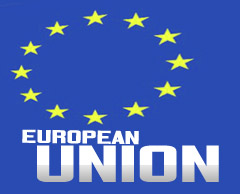EU, Russia hope to put energy rows behind them at summit
 Brussels - Russia and the European Union hope to prevent future energy supply crises by setting up an early-warning system at a summit in Stockholm on Wednesday.
Brussels - Russia and the European Union hope to prevent future energy supply crises by setting up an early-warning system at a summit in Stockholm on Wednesday.
According to officials in Brussels, both sides are keen to prevent a recurrence of the kind of row which caused gas supply shortages in the EU twice in the last four years, but their efforts to improve the situation have been hampered by a lack of trust and by inadequate information.
"The idea of early warning as a concept is to try to prevent any disruptions, and early information helps to take preventive measures," Russia's ambassador to the EU, Vladimir Chizhov, told journalists in Brussels.
While the details of the plan are not due to be finalized until Monday, officials on both sides said that they hoped for a deal in time for the Stockholm summit, so that Russian President Dmitry Medvedev and Swedish Prime Minister Fredrik Reinfeldt could sign it.
Sweden currently holds the EU's rotating presidency.
The first time the two sides set up a system for warning of impending energy problems was in 2007, a year after a row between Russia and Ukraine caused three days of gas shortages in Europe.
The system was based on appointing a high-level official on each side who would be the first point of contact in a crisis.
But following a similar, but longer, supply row at the beginning of this year, the EU's executive, the European Commission, called for the system to be strengthened and expanded.
The new system should cover oil and electricity as well as gas, should be open to third countries such as Ukraine, and should include precise definitions of what a crisis is and how the parties involved should go about dealing with it, EU officials said.
"This is not just a red phone connecting Moscow and Brussels: it's a network of commitments which include prompt information of any disruptions to our energy links ... (and) information on planned new measures and regulations," Chizhov said.
Reinfeldt and Medvedev are also expected to discuss the vexing question of Russia's bid to join the World Trade Organization, after the country in June announced plans to join a customs union with Belarus and Kazakhstan.
The announcement threw WTO negotiations into confusion, since the three potential members of the union are at different stages in the accession process and have not made it clear how they plan to carry on the talks once the union comes into being on January 1.
Chizhov insisted Friday that his country was still interested in joining the Geneva-based body, despite reports to the contrary.
EU officials are concerned at what they see as a rise in protectionism in Russia following the beginning of the global economic crisis, accusing the country of putting unfair tariffs on imports such as foreign cars and exports such as raw wood.
Reinfeldt and Medvedev are also expected to discuss the fight against climate change in the lead-up to United Nations talks in Copenhagen in December, and international issues such as Iran and Afghanistan. (dpa)